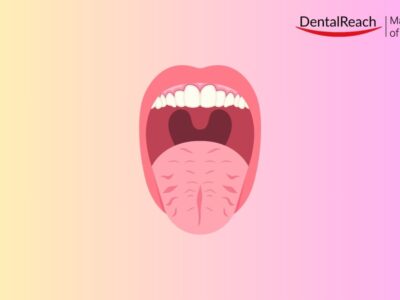Diagnostic error is a big problem in the medical field. Compared to medical field, in dentistry there are less drastic diagnostic errors. There are different reasons for diagnostic errors which vary from individual to individual and type of practice.
Errors in diagnosis is the leading cause of dental malpractice claims now days. That’s why it’s important to know why they occur and learn how to minimize them.
Why diagnostic errors occur in dentistry?
- Lack of communication and collaboration in dentists and patients, especially at corporate dental clinics and trust hospitals
- Less diagnostic equipments at trust dental clinics
- Targets and pressure from clinic management to the dentists
- Hiring inexperienced dentist for low salary
- In private practice, lack of team work
- Inexperienced dental lab support
- Lack of technology because of expenses
Stopping diagnostic errors
1. Develop teamwork between various specialties of dentists and patients.
Most of the times, some underlying diseases are left undiagnosed and treatments are initiated which often end up with failures. Most commonly overlooked and left untreated diseases are gingival-periodontal diseases & pre-cancerous lesions. Whenever in doubt take opinions from panel of specialist dentists at your clinic irrespective of type of practice it is.
Teamwork helps to diagnose the case properly; it helps to formulate right and long term stable treatment options to the patients. Many clinicians perform endodontic part very well in cases of endo-perio or perio-endo lesions but fail to explain and treat periodontal part. Sometimes, extractions are performed of prosthetically important positioned tooth, and sometimes a tooth which will interfere in the long term prognosis of the prosthesis is saved. In such situations, it is better to take advise from specialists if the operator is not confident enough about prognosis or final rehabilitation.
While diagnosing precancerous lesions, if operator is not sure he or she must take advice from specialist or refer to a higher / tertiary care centre. Team work helps to minimize errors. This helps to increase patient’s faith on you as well.
2. Continue education and training
It is very important to update our self with current knowledge and technology. Newer technologies are emerging in markets for easy diagnosis to reduce the errors. Keeping ourselves updated is the first step toward reducing diagnosing errors. Also invest for newer technologies and services at your clinic which helps to diagnose cases easier e.g. RVG, Vistascan, OPG, CBCT. Most of the clinicians do not use well calibrated periodontal probes to check for periodontal pockets that may result into misdiagnosis, like some may consider even a shallow 4 mm pocket for the treatment and 8 mm periodontal pockets are remain undiagnosed. Complicated cases like full mouth rehabilitations, MB2 Canals in maxillary molars, basal implantology, full arch reconstructions, TMD treatments or surgeries for cystic lesions should not be attempted without prior knowledge or without guidance of experienced mentors in the field.
3. Hiring experienced staff
If you want fewer diagnostic errors at your dental clinic, make a rule that only experienced dentists should assess all the patients and if it is not possible, reassess patients if some newer staff is working at your clinic.
If you want to maintain your position in the market you must hire good experienced dentists for yourself and give them a good salary too. If it is not possible and you need to appoint newly graduated dentists, teach them – don’t criticize them and give good compensation for their services too.
Don’t exploit anybody by giving them less salary or employing them as ‘locum’. Happier the staff, lesser the errors. This is a general rule in any kind of business. Sort out patients and work according to difficulty levels and experience of the dental associates. This will help you concentrate on difficult and challenging cases. This reduces the burden and one can work with full enthusiasm while dealing with difficult and challenging cases. Appoint staff which is willing to work for you for longer duration. Frequent changing of staff can have an effect on patients’ mind set. Whenever possible increment salary or provide incentives for your appointed staff as you can avoid the frequent need to search for newer staff for you.
4. Record keeping
Keep all the details about patient complaints, history and treatment plan when you have multiple staff working for you. This ensures complete transparency of treatment protocol amongst all associates. This will also assist co doctors when patients come for follow up and provide answers to pertinent questions like what was the previous treatment? Name of the doctor who worked on the patient? Was the treatment completed or patient left treatment in midway or he refused to take treatment etc.
5. Learn from mistakes
Many practitioners do not accept their mistakes easily and keep on blaming something or the other. Many times, patient gets crowns on particular tooth just for small class 2 cavity. That increases chance for root canal treatment in future.
Many a times patients are prescribed unnecessary painkillers and antibiotics without the diagnosis of the root cause. For example, patients are prescribed painkillers and antibiotics after crown placement on non-root canal treated tooth for many days when relief was possible after occlusal adjustments. Try to learn from mistakes and remember – it is not always necessary that mistakes should be your own. Learn from somebody else’s mistakes too.
Conclusion-
Diagnostic errors are multi-factorial. Careful patient management, team work and use of technology can reduce the diagnostic errors. Learning from mistakes is also important to minimize errors in future. Hence attending conferences, courses and seminars from continuing education programs is also important.
References
- https://www.dentistrytoday.com/news/industrynews/item/2515-dentists-make-few-errors-compared-to-their-medical-colleagues.
- https://timesofindia.indiatimes.com/blogs/the-irreverent-lawyer/greed-and-the-rise-of-medical-malpractice-in-india/
- http://www.healthcarebusinesstech.com/reduce-diagnostic-errors/
- https://thedoctorweighsin.com/the-why-and-how-of-diagnostic-errors/




















Comments